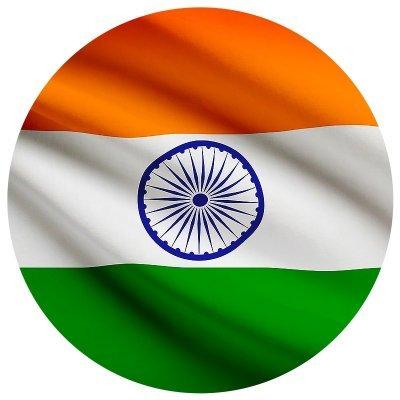Title: India’s Strategic Response to the Growing Turkey-Pakistan Partnership Amid Geopolitical Shifts
In recent times, the deepening alliance between Turkey and Pakistan has emerged as a significant concern for India, reshaping power equations across South Asia. This expanding cooperation—spanning military collaboration, economic ties, and diplomatic support—has prompted New Delhi to rethink its security policies and regional diplomacy. With Ankara increasingly backing Islamabad on sensitive issues like Kashmir, India faces the imperative of crafting a comprehensive strategy that blends military readiness, persuasive narrative-building, and strengthened alliances with nations invested in curbing Turkey’s regional ambitions. Navigating this intricate geopolitical environment demands that India protect its sovereignty while cultivating partnerships capable of counterbalancing the Turkey-Pakistan axis. This article delves into potential pathways for India to assert its influence effectively within both regional and international arenas.
Bolstering Defense Capabilities: Reinforcing India’s Military Edge in South Asia
India’s quest for maintaining strategic superiority in South Asia has become more urgent amid the intensifying ties between Ankara and Islamabad. To neutralize this emerging bloc’s impact, India must adopt a layered defense approach that integrates cutting-edge technology upgrades with expanded defense spending and enhanced interoperability through joint exercises with key global partners such as the United States, France, and Australia. Recent data indicates India’s defense budget reached approximately $80 billion in 2023—a figure expected to grow steadily as New Delhi prioritizes modernization programs including indigenous missile systems like Agni-VI.
Furthermore, strengthening naval dominance across critical maritime corridors—the Indian Ocean Region (IOR)—is vital to deter any hostile maneuvers facilitated by foreign alliances. The commissioning of new aircraft carriers such as INS Vikrant exemplifies India’s commitment toward securing sea lanes against external threats empowered by Turkish-Pakistani cooperation.
Parallelly, diplomatic engagement aimed at narrative shaping complements hard power initiatives by fostering coalitions with countries sharing concerns over Ankara’s expanding footprint—namely Russia and Iran. Active participation in multilateral forums like the Shanghai Cooperation Organization (SCO) enables India to promote collective security agendas focused on counter-terrorism efforts while enhancing economic integration within Eurasia.
Narrative Diplomacy: Constructing an Effective Counterbalance to Turkey-Pakistan Influence
In today’s interconnected world where perception often drives policy outcomes, strategic narrative diplomacy emerges as an indispensable instrument for India confronting the growing synergy between Turkey and Pakistan. By leveraging shared historical legacies rooted in pluralism alongside democratic governance models prevalent across many Middle Eastern states sympathetic toward Indian values—and contrasting these against Erdogan’s increasingly assertive foreign policy marked by anti-Indian rhetoric linked primarily to Kashmir—New Delhi can craft compelling narratives underscoring risks posed by this alliance.
To amplify these messages effectively among Turkish audiences—including policymakers—a series of targeted cultural exchanges could be initiated:
- Collaborations promoting Indian classical music festivals hosted jointly with Turkish cultural centers.
- Bilateral academic partnerships focusing on renewable energy research reflecting mutual interests.
- A media campaign highlighting India’s technological innovations such as space exploration achievements (e.g., Chandrayaan missions) broadcasted via popular Turkish channels.
Such initiatives not only challenge prevailing perceptions but also foster goodwill based on mutual respect rather than confrontation—thereby steering discourse towards balanced geopolitical understanding emphasizing shared security concerns over divisive narratives.
Strengthening Regional Coalitions: Aligning Strategically with Ankara’s Competitors
Given evolving dynamics within South Asia-Middle East nexus, it is imperative for India to cultivate robust relationships with countries historically wary of Turkey’s expansionist policies. Nations including Egypt—with longstanding disputes over Eastern Mediterranean resources; Greece—which contests territorial incursions into Aegean waters; along with UAE opposing Turkish involvement in Libya’s civil conflict—all represent valuable partners whose interests align closely with New Delhi’s objective of containing Ankara-backed influence.
By deepening defense collaborations encompassing joint military drills tailored around maritime security operations or counter-insurgency tactics—as well as broadening trade agreements particularly focused on energy diversification—India can position itself firmly within a coalition designed explicitly to checkbalance Turkish ambitions regionally.
| Country | Main Concerns Regarding Turkey |
|---|---|
| Egypt | Tensions over Eastern Mediterranean hydrocarbon exploration; opposition due to support for Muslim Brotherhood factions. |
| Greece | Sovereignty disputes involving Aegean Sea islands; frequent airspace violations attributed to Ankara. |
| UAE | Divergent stances regarding Libyan conflict intervention; resistance against political Islam exportation linked back to Turkey. |
Simultaneously reinforcing these partnerships through consistent diplomatic outreach at global platforms such as G20 summits or United Nations assemblies will help consolidate shared objectives centered around combating terrorism networks while promoting sustainable development goals aligned across member states’ priorities.
Conclusion: Charting a Forward-Looking Path Amid Complex Geopolitical Realities
As geopolitical currents continue shifting rapidly throughout South Asia and beyond—with new alliances forming amidst ideological contestations—it is essential that India’s response towards mitigating challenges posed by the burgeoning Turkey-Pakistan partnership remains dynamic yet cohesive. By integrating enhanced military preparedness alongside sophisticated narrative diplomacy efforts—and simultaneously forging stronger bonds among Ankara’s regional rivals—India stands poised not only to safeguard its national interests but also contribute meaningfully toward broader regional stability.
Moving past conventional diplomatic frameworks requires innovative thinking attuned both locally—to address immediate threats—and globally—to engage diverse stakeholders invested in peacekeeping endeavors worldwide. Ultimately success hinges upon sustained vigilance coupled with adaptive strategies capable of resonating deeply within evolving international contexts shaped increasingly by multipolar competition rather than unilateral dominance alone.
